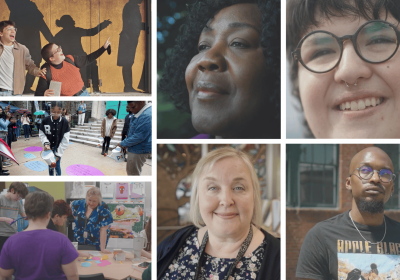By Karen Price
Fish bolting through the sky.
Dogs plunging into dry water.
Friends, ramen noodles and lemons.
The Rain Poetry project asks young people to express themselves creatively through haiku, and the students from Assemble in Pittsburgh’s Garfield neighborhood embraced the opportunity. At the very first Rain Poetry reveal celebration in the city of Pittsburgh, Assemble founder and executive director Nina Barbuto told the students that their words and ideas were important.
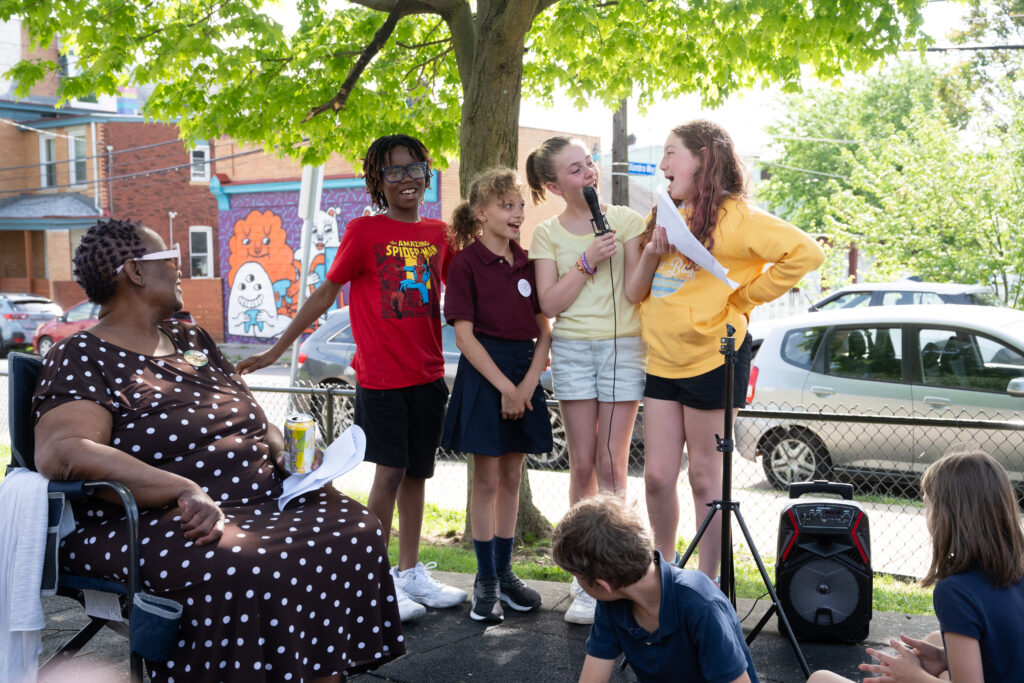
“Your words can have an impact on someone else,” she said. “This is the opportunity to take your ideas and bring them to life in something that is beyond a piece of paper. Assemble is involved in (Rain Poetry) because we’re all about building confidence for making. People have made up the whole world, and you can do that, too.”
PA Humanities launched Rain Poetry in Philadelphia in 2023 as part of the organization’s 50th anniversary celebration. The project brings teaching artists to youth to learn about haiku poetry in special workshops, then takes the poems the students write and turns them into community installations using a special hydrophobic spray paint that only appears when the ground is wet.
Taking lessons from that successful pilot, PA Humanities brought the project to Pittsburgh this spring and transitioned from working in schools to partnering with after-school programs. To encourage the young poets’ agency over their creations, each site chose its own theme on which to focus their writings.
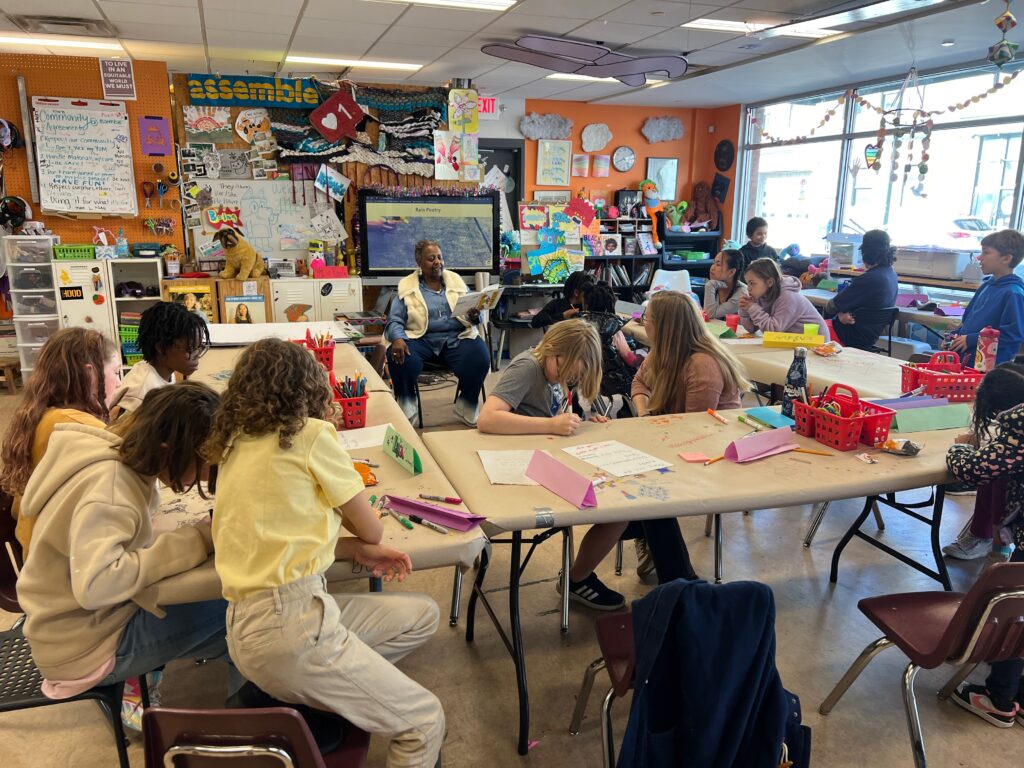
Assemble is an organization that uses learning as a tool to create a more equitable future for youth and learners throughout Pittsburgh and seeks to build confidence through making, connect learners, makers, technologists and artists, and nurture agency in learners. For Rain Poetry, teaching artist Karen Howard worked with students in third through fifth grades who’d been exploring the theme “the future” throughout the school year. She led them in a discussion of haiku poetry, including its origins in Japan and form, then had them brainstorm words to describe the future as they practiced counting syllables.
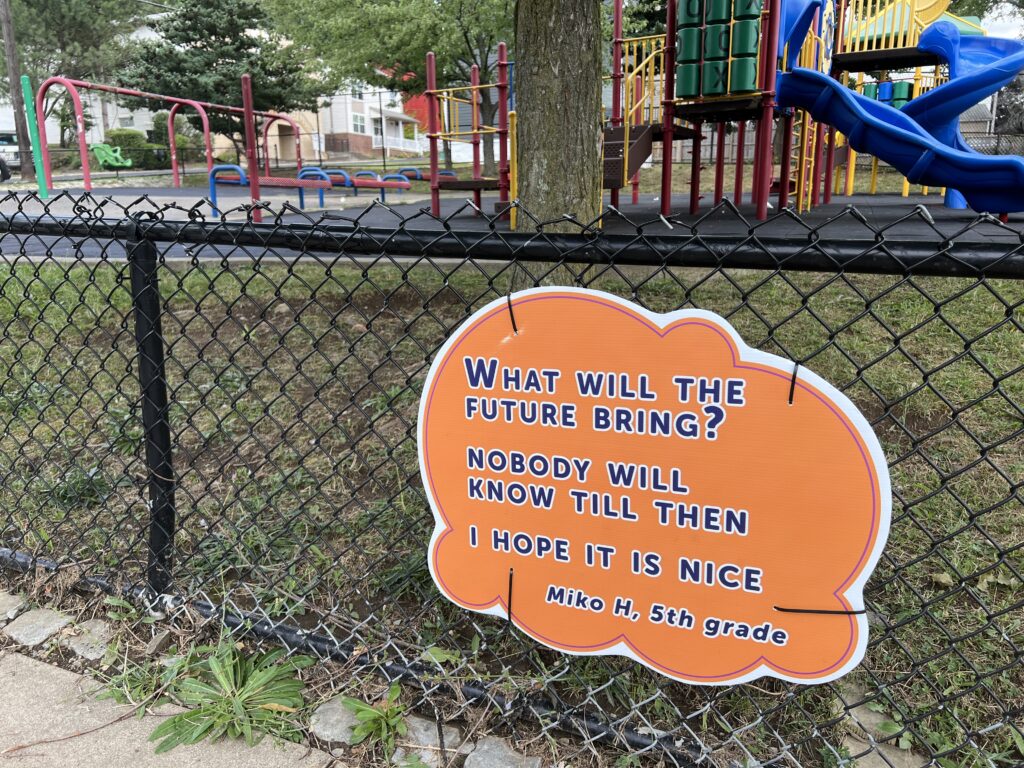
Assemble afterschool coordinator and educator Tany Haynes said that they’d done some creative writing with the students before, but never poetry.
“Just that idea of building up their language skills and their knowledge around language fit in really well with what we do at Assemble,” she said.
The students then worked in small groups to write and even illustrate their haiku. The resulting poems showcase the great imagination and whimsy these young poets brought to the project.
“I really enjoyed seeing the kids working together when they broke off and were writing their own haiku,” Haynes said. “It was cool to see them take their own initiative and see their creativity come out.”
After the workshop, local artists Shane Pilster and Max Gonzales, of Do What We Love, took the poems and created stencils and decals to design an art installation at Nelson Mandela Peace Park. The park and playground is just blocks from Assemble in the Garfield neighborhood, and is a popular spot not only for the students who go to Assemble but also the community as a whole. The installation allows the students to see their work displayed in public, and invites neighbors, friends and family to experience the poems and have their own discussions about the future and what it means to them.
Fifth grader Christopher Busby was one of the students who participated in Rain Poetry and was interviewed by KDKA television for a story on the project. He even made up his own words — nacho boings and slyinggods — to describe his idea of the future.
“It actually feels pretty good,” he said, when asked what it felt like to see his words displayed at the park. “I never thought I would get this kind of accomplishment this young into my life.”
Said Aliana Mason, “If any of my friends come by, I hope they see it. And I’m going to brag to them, ‘I’m a famous artist now. My work is on the sidewalk.’”
Watch KDKA TV’s news segment on the reveal celebration
Listen to the Yinz Are Good podcast about the Rain Poetry project
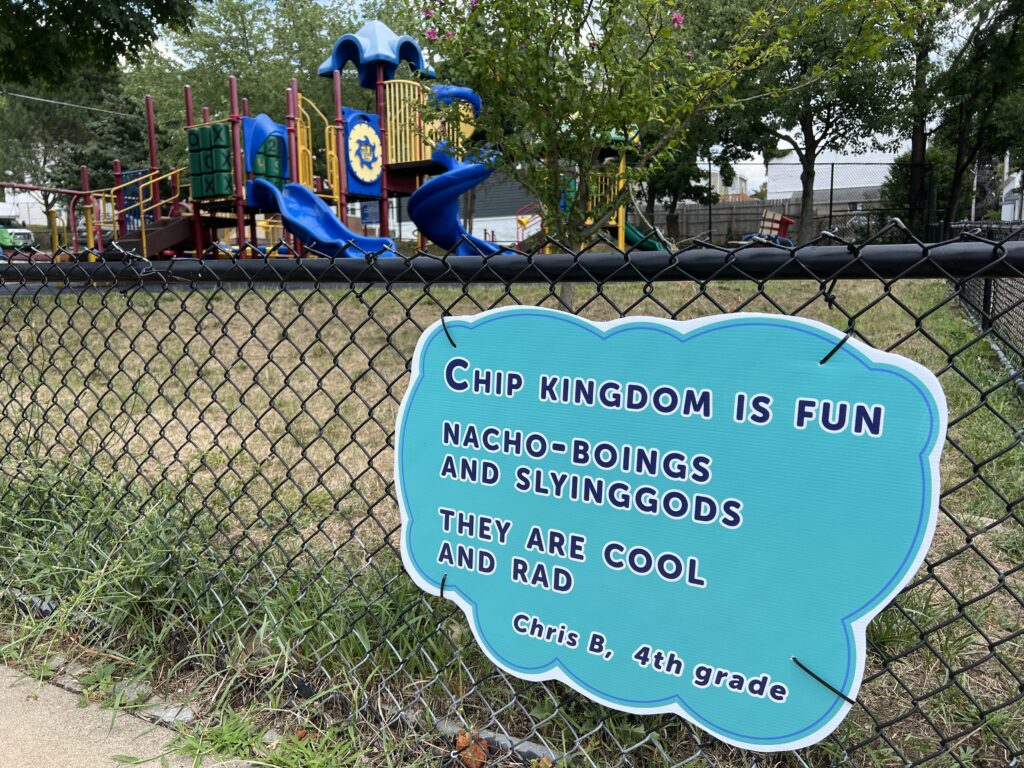
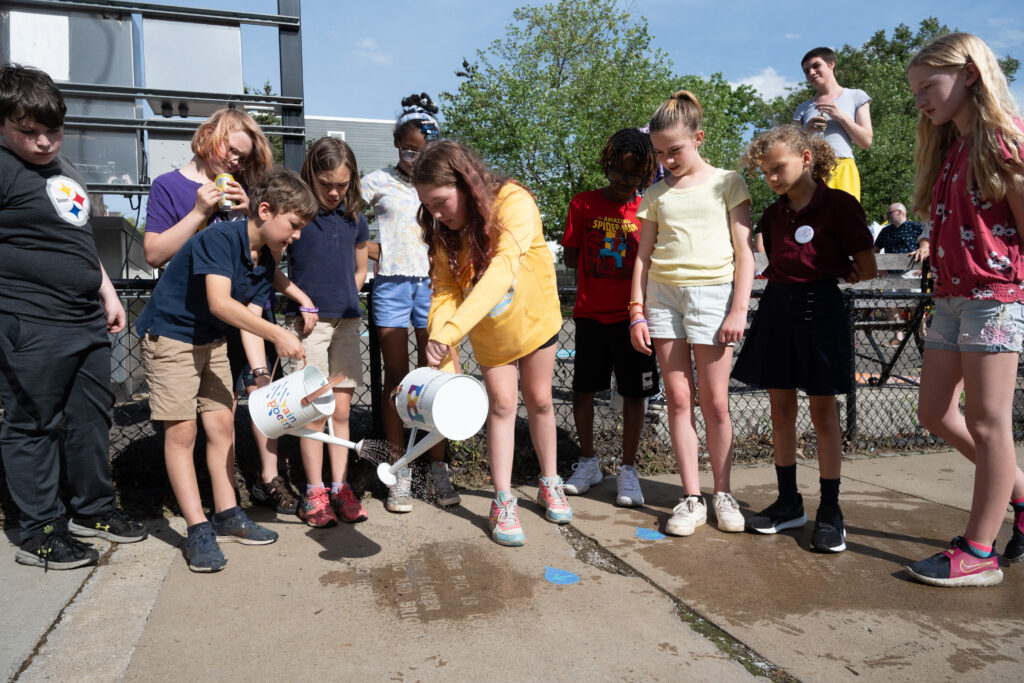
![[color – dark bg] PA SHARP FINAL FILES DB 72dpi [color - dark bg] PA SHARP FINAL FILES DB 72dpi](https://pahumanities.org/uploads/files/elementor/thumbs/color-dark-bg-PA-SHARP-FINAL-FILES-DB-72dpi-phgl7aimtfdpzt2rscvl43ksfv3asbbls19lsvuacw.jpg)

